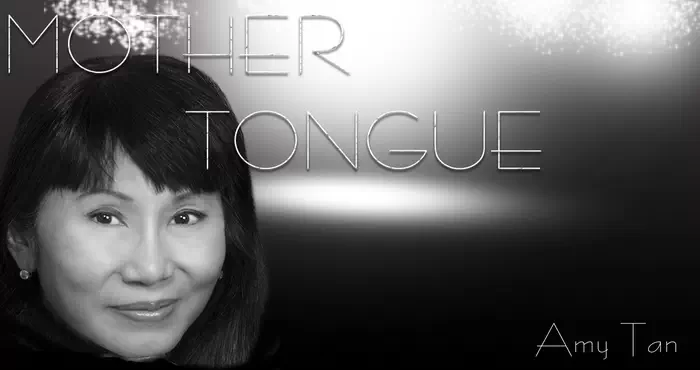Language barriers and cultural differences is a real issue for people. Children of immigrant families get a unique view and experience as a bilingual kid; they will become familiar with two different backgrounds. Amy Tan, Author of “Mother Tongue” uses her personal experiences with her mother to create a contrast between her mother who speaks “broken English”, other people and herself who speaks “perfect English” yet is also fluent in ‘broken English.
Tan talks about how people are treated differently based on how they speak, if you seem to be more sophisticated and precisely say your sentences, you can earn people’s respect easier. She uses her essay to persuade people that language is not so superficial.
In “Mother Tongue“, Amy Tan uses anecdotes and anaphora to emphasize that language is not about the surface structure, but rather about the underlying meaning the thoughts come from. Tan uses anecdotes throughout the essay to describe her growing wisdom of language and its evolving roles in her life. She found that while she is presents formal lectures, she uses phrases such as “The intersection of memory upon imagination” and “There is an aspect of my fiction that relates to thus- and- thus”. But when she is with her mother, she will use the same “broken English” her mother uses. When they were talking about the “price of used furniture, she found herself saying this: “Not waste money this way”. This illustrates the difference between the two types of language Tan uses. It may be habit for her mother to better understand, but Tan does states that her mother is capable of understanding words. These anecdotes lead to a large falsehood that people who have language barriers are not smart enough to understand what is being said. It has been pressed into us, that we need to sound smart in order for people to believe that we are smart. However, Tan uses these anecdotes to argue that we cannot judge a persons faulted speech, it’s the passion with which one speaks and the meaning that they are trying to relay, which makes a person a truly effective speaker. Tan also uses repetition to make comparison between her “perfect English” and her mother’s “broken English”, by describing the specific issues each has.
On top of the constant use of broken, simple, imperfect and perfect English to describe the difference between her and her mother’s speech, the author also uses repetition when describing other people’s view of her mother’s speech. Tan did not have issues understanding her mother’s language because she grew up with it, but “some of her friends said they understand 50 percent of what her mother said. Some say they understand 80 to 90 percent. Some say they understand none of is, as if she were speaking pure Chinese”. Then she goes on to say that “her mother’s English is the perfectly clear, perfectly natural” because she grew up around it. This clearly shows a distinction between Tans view and other peoples view of her mother’s language. It gives the audience an image of her having a foot in both cultures. She gains more credibility this way by speaking from personal experience. She clearly shows that although others might see one a certain way, others can see them a different way, and language, like many other things, can’t be judged quickly.

